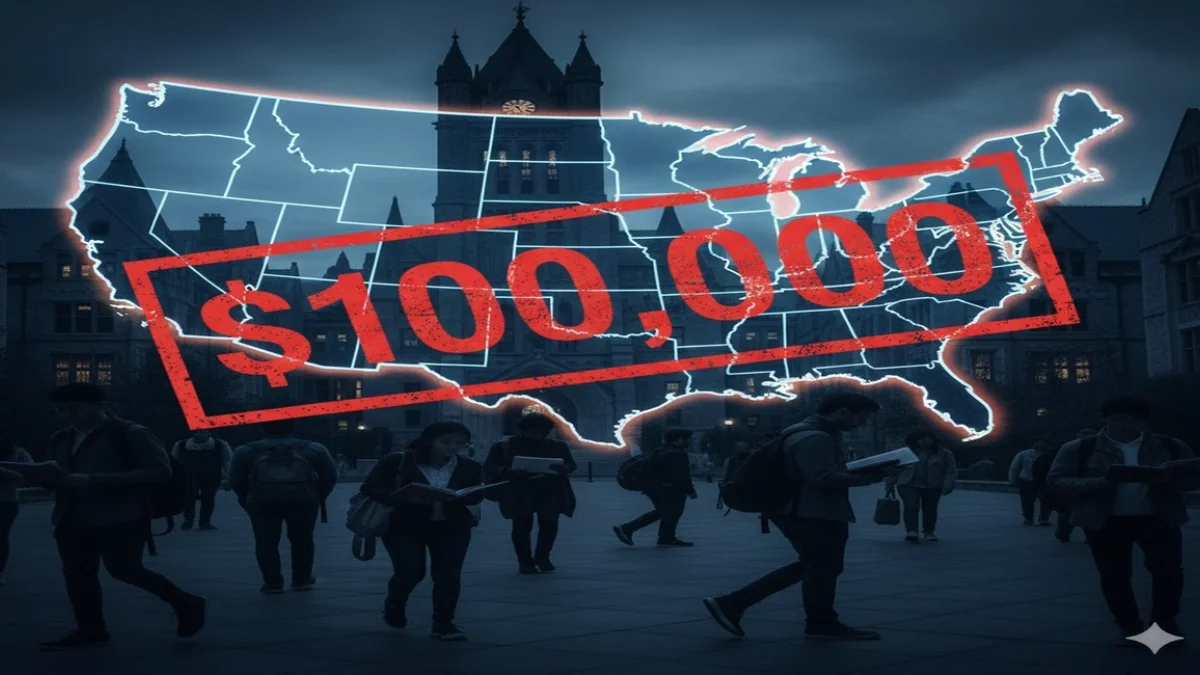Trump’s $100K H-1B Visa Fee: A Major Strain on Universities & Schools
When President Donald Trump announced a sweeping H-1B visa fee hike—setting the levy for new petitions at $100,000—the ripple effect was immediate. While much of the attention has focused on big tech, it’s universities and schools that may face the harshest consequences. They depend on international faculty, staff, and graduate students to fuel research, teaching, and stability. Now, that reliance is under pressure.
In this piece, I walk through how Trump’s H-1B visa fee change is reshaping higher education, which institutions are most exposed, and what the road ahead may bring.
The Core Shift: From Modest Fee to Exponential Burden
Before September 21, 2025, employers paid H-1B application costs ranging between $2,000 and $5,000 depending on size and structure. With the new presidential proclamation, any new H-1B petition must now include the additional $100,000 fee, unless exempted on national interest grounds. :contentReference[oaicite:0]{index=0}
Until now, universities and non-profit research institutions had been exempt from many of the H-1B constraints—including caps and certain fees. That special status is being eroded.
Estimates suggest the cost could be ruinous. Columbia University, for example, may face an extra $20 million annually if all new international hires are subject to the change.
A coalition of educators, healthcare providers, and unions has already filed a lawsuit in federal court to block implementation. They argue the fee was imposed without authorization and will cripple essential sectors.
Anand Mahindra Downloads Arattai App, Zoho Founder Sridhar Vembu’s Humble Reply Goes Viral
Why Universities Are on the Front Lines
1. Research & Teaching Depend on Global Talent
Many universities rely on foreign scholars to lead labs, teach specialized courses, and fuel innovation. Without competitive hiring, some programs may collapse.
2. Financial Pressure Is Real
Small liberal arts colleges with limited endowments can’t absorb sudden multi-million dollar costs. Universities already budgeting carefully may be forced to curtail hiring.
3. Graduate Student Pipeline Disruption
International students often shift to H-1B status after graduation. If universities avoid sponsoring visas, students may look elsewhere, weakening the global appeal of U.S. campuses.
4. Institutional Responses Vary
Some institutions vow to maintain hiring. Williams College, for instance, stated it will not alter its current hiring practices despite the fee hike.
Others, especially research universities, are scrambling to forecast costs and staffing gaps.
Expert Take & Strategic Calculus
Legal scholars contend the executive branch lacks authority to impose a revenue fee of this magnitude without Congress. The lawsuit led by the American Association of University Professors and others calls the fee unconstitutional.
Policy analysts warn of chilling effects. Institutions in STEM and biomedical research may become less competitive globally. International hiring could shift to other countries with more welcoming immigration rules.
Some private companies, like Nvidia, have pledged to absorb the cost for new hires, underscoring how deep pockets might shield industry from disruption while burdening education.
What Comes Next: Paths & Implications
- Court outcome: If the injunctions succeed, implementation may stall or be rolled back.
- Selective exemptions: Institutions may lobby for narrow carveouts—e.g. for essential research or rural colleges.
- Hiring freezes: Universities may delay or cancel recruitment of international staff.
- Global recalibration: Some international students or scholars may avoid U.S. institutions altogether.
Conclusion
The Trump H-1B visa fee hike is not a distant policy shift—it is an acute disruption to American higher education. Universities and schools are staring down potential budget crises, diminished talent access, and structural damage to research ecosystems. The path forward rests on legal fights, policy responses, and financial resilience. Stay tuned as this story unfolds.
Modi Opens Navi Mumbai Airport; Starmer Eyes India Trade Deal; Andhra Blast Kills 6
Frequently Asked Questions
Q: Will the $100K H-1B visa fee apply to current H-1B holders?
A: No. The new fee applies only to new H-1B visa petitions filed after September 21, 2025. Renewals and existing status holders are exempt.
Q: How much did H-1B visa applications cost before this change?
A: Costs ranged between $2,000 and $5,000 depending on employer size, excluding premium processing and other fees.
Q: Which universities are most vulnerable to the impact?
*A: Research institutions with large international faculty rosters—Columbia, Stanford, Washington University in St. Louis—are among the 25 worst-hit.
Q: Is there legal action challenging the fee?
*A: Yes. A coalition of educators, unions, and service providers has filed suit to block the fee, citing a lack of congressional authority.
Q: Could universities reduce hiring to offset costs?
*A: Many may delay hiring or scale back reliance on international staff—though some institutions, like Williams College, are resisting such changes.
Q: How might this affect international students or scholars?
A: Fewer universities may sponsor H-1B visas, discouraging global talent from coming to or staying in the U.S., and weakening America’s academic appeal.

